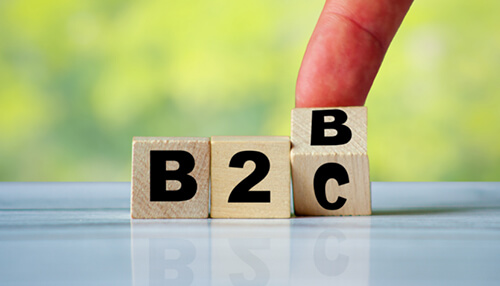What Are B2B And B2C Customer Service?
B2B And B2C customer service: B2B customer service turns to the businesses to you for technical and complex issues. While B2C customer service relates to the end-users as they are the customers.
What Is the Difference Between B2B and B2C Customer Service?
1. Understanding Customers
Dealing with B2C companies means different customers will come ahead looking for different queries. It is not easy to maintain the same relationship as customer relationship management, so the B2C repeat rate is mostly slow.
With B2B companies, it involves interacting with different individuals or a company representative. Understanding the customer and building a relationship is easy. The cycle of sales is long with B-2-B companies, and there is a better opportunity in developing the customer’s knowledge. Offering a B2B company, extraordinary customer support helps retain high-value customers.
2. B2B And B2C Customer Service Impact On Revenues
B2B and B2C customer service have an impact on revenues and B2B businesses deal with services and product sales in large volume to other businesses. The interaction with B2b customers has an impact on the company’s revenues.
Interacting with a B2C customer implies you are satisfying the end-user and making a sale of your service or product to a consumer. It also influences your overall revenue. A B2b customer buys large columns, and there is a lifetime value than a B2C customer. Thus, it costs you millions, if you go wrong with B2B customer dealing that there is no point in stressing B2B customer relationship management. You cannot ignore B2C customers but should handle both appropriately.
3. Contact Points
With B2C companies, customer contacts or end-user is the support. It means you must address issues relating to the service or product of each customer. While B2B business complaints are of many clients and represent the entire clientele contacting your customer support team through an eCommerce website.
The support agents should have companies’ access to tickets to identify the issue cause and resolve it promptly. It is one of the valuable marketing strategies. Accessing the service request history may be a personalized solution.
4. Quick Resolution
With B2C customer service, you may support an individual, your target audience. Striving to provide a good experience to your audience is important. Offering quick resolution enhances customer experience.
It is necessary to value your customer’s time by addressing promptly their queries. Train the service reps to deal with customer requests on time. Resolving the issues enhances customer satisfaction.
5. Dedicated Support
B2B customer service deals with a company, and there is a higher value with B2B customer service. B2B and B2C customer service, both need to concentrate on their clients. Losing a client is a major loss. You may offer extraordinary services and provide in-depth and well-tailored support in developing lasting relationships.
The best way of satisfying B2B customers is by offering a dedicated team. Hiring an account manager to assist customers on timely bases is one of the best marketing strategies. Bear in mind, the account manager needs to acknowledge the customers to foster with customers a healthy relationship.
6. Mobility
Customers in the modern-day yearn to perform on the go most of their tasks. Resolving issues as they are going would result in a gratifying experience. Your target audience will become your repeat customers.
B2B or B2C eCommerce website, including a mobile app, online chat, or voice response system is the need of the hour. Offering mobile-friendly options such as live chat with customers, and social media contact points is convenient to place a complaint. Companies accessible through smartphones are more desirable to B2C customers. It empowers the entire B2B team as well.



